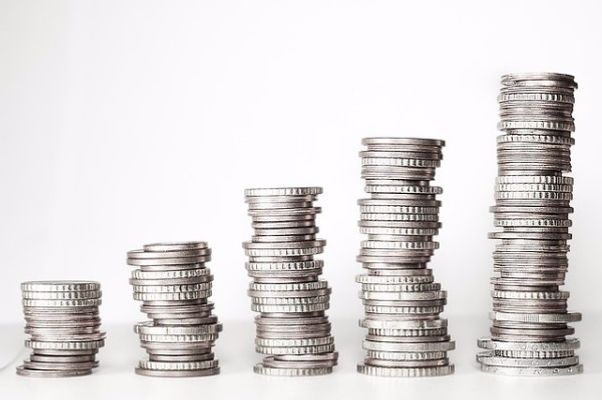8.3.1
Development: Aid & Trade
Development in Relation to Aid & Trade
Development in Relation to Aid & Trade
There are different strategies that can be used to help a country develop, including aid and trade.


What is aid?
What is aid?
- Aid is the movement of resources from developed countries to developing countries. Aid can be given in the form of a grant or a loan.
- A grant is aid that does not require repayment.
- A loan, on the other hand, needs repaying.


Modernisation theory & health
Modernisation theory & health
- Aid can come from governments, NGOs, charities and private individuals.
- Modernisation theorists suggest that aid provides a necessary early boost to a country’s economy and, subsequently, its infrastructure.
- Some aid is focussed on specific health interventions, e.g. vaccination programmes from children. Smallpox is an example of a disease that has been largely wiped out due to targeted aid programmes.


Dependency theory on aid
Dependency theory on aid
- Some argue that the high administration costs associated with larger organisations means that the actual money getting through to those in need is relatively small.
- Dependency theory argues that aid from the UK and the USA usually relies on whether the political ideology of a country is in keeping with Western values and principles.


Modernisationist theory on trade
Modernisationist theory on trade
- Modernisation theorists say that developing countries need to increase their share of world trade to be more competitive and, subsequently, develop.
- They can do this by selling the natural resources they produce to generate an income.
- They can also use their potential workforce as a ‘trade’; attracting TNCs with lower wage bills and fewer legislative constraints on their practice.
- The money employees then earn is spent in the country, thereby providing a further boost to the economy.


Problems with trade
Problems with trade
- One problem with developing a nation through trade is that western countries pay only a small amount for a developing nation’s ‘raw material’ (for example coffee).
- They then refine it and increase the cost to the consumer, sometimes by over 100x. This means that the benefits are massively disproportionate.
1Theory & Methods
1.1Sociological Theories
1.2Sociological Methods
2Education with Methods in Context
2.1Role & Function of the Education System
2.2Educational Achievement
2.3Relationships & Processes Within Schools
3Option 1: Culture & Identity
3.1Conceptions of Culture
3.2Identity & Socialisation
3.3Social Identity
3.4Production, Consumption & Globalisation
4Option 1: Families & Households
4.1Families & Households
4.2Changing Patterns
4.3The Symmetrical Family
4.4Children & Childhood
5Option 1: Health
5.1Social Constructions
5.2Social Distribution of Healthcare
5.3Provision & Access to Healthcare
5.4Mental Health
6Option 1: Work, Poverty & Welfare
6.1Poverty & Wealth
7Option 2: Beliefs in Society
7.1Ideology, Science & Religion
7.2Religious Movements
7.3Society & Religion
8Option 2: Global Development
8.1Development, Underdevelopment & Global Inequality
8.2Globalisation & Global Organisations
8.3Aid, Trade, Industrialisation, Urbanisation
9Option 2: The Media
9.1Contemporary Media
9.2Media Representations
10Crime & Deviance
10.1Crime & Society
10.2Social Distribution of Crime
Jump to other topics
1Theory & Methods
1.1Sociological Theories
1.2Sociological Methods
2Education with Methods in Context
2.1Role & Function of the Education System
2.2Educational Achievement
2.3Relationships & Processes Within Schools
3Option 1: Culture & Identity
3.1Conceptions of Culture
3.2Identity & Socialisation
3.3Social Identity
3.4Production, Consumption & Globalisation
4Option 1: Families & Households
4.1Families & Households
4.2Changing Patterns
4.3The Symmetrical Family
4.4Children & Childhood
5Option 1: Health
5.1Social Constructions
5.2Social Distribution of Healthcare
5.3Provision & Access to Healthcare
5.4Mental Health
6Option 1: Work, Poverty & Welfare
6.1Poverty & Wealth
7Option 2: Beliefs in Society
7.1Ideology, Science & Religion
7.2Religious Movements
7.3Society & Religion
8Option 2: Global Development
8.1Development, Underdevelopment & Global Inequality
8.2Globalisation & Global Organisations
8.3Aid, Trade, Industrialisation, Urbanisation
9Option 2: The Media
9.1Contemporary Media
9.2Media Representations
10Crime & Deviance
10.1Crime & Society
10.2Social Distribution of Crime
Unlock your full potential with Seneca Premium
Unlimited access to 10,000+ open-ended exam questions
Mini-mock exams based on your study history
Unlock 800+ premium courses & e-books